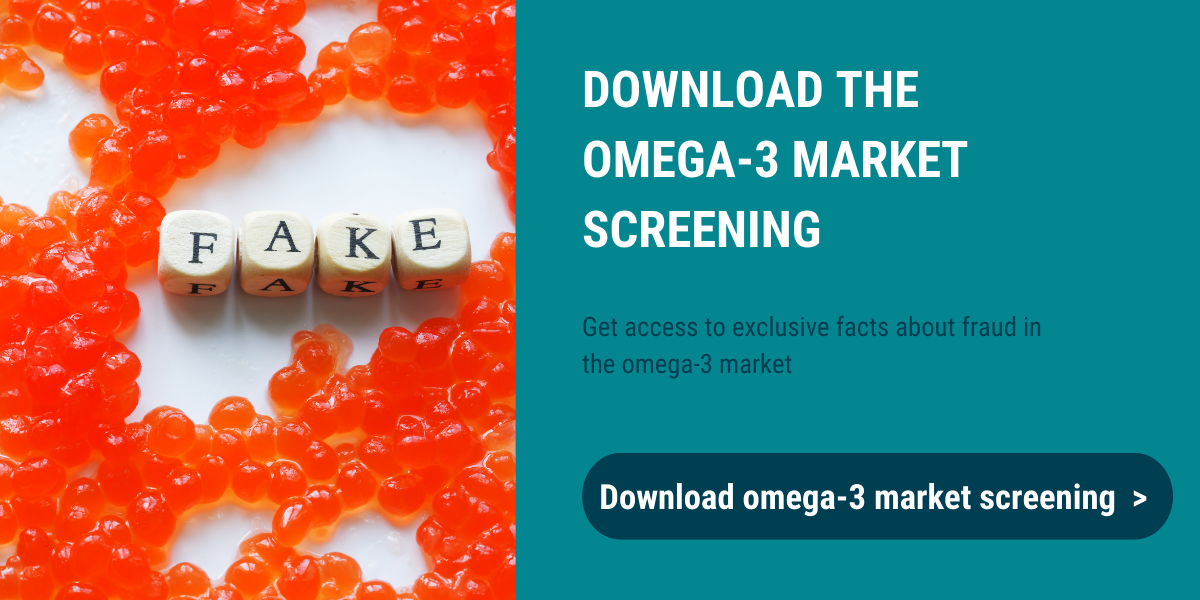Are you about to enter the omega-3 industry with a brand new product? Or maybe relaunching an existing product? Here is a checklist for you to consider when entering the omega-3 space.
1. How sustainable is your omega-3 product? You should act responsible in the omega-3 industry.
You should always consider the impact your product has on the environment. Both because consumers care, and so does Mother Nature. Take a deeper look at your product: Where are the raw-material sources coming from? Are they being shipped across the world many times for processing before they enter as ingredients in your product? Some ingredients are obviously not possible to find in your backyard and some transport is a necessity, but make sure to minimize the impact your product has on the environment.
2. Is your omega-3 product made from high-quality raw materials?
Make sure to avoid badly processed sources. Your raw material should be as fresh and pure as possible, which is important to ensure the best health benefits for consumers.
Do you want to learn more about omega-3 sources? Take a look at The ultimate guide to omega-3 sources.
3. Less is more, also when formulating your omega-3 product
What ingredients do you actually need in your product and which ones are only “nice to have”? Keep your product clean and authentic, also when choosing the most important ingredient – the omega-3 source. Make sure your product originates from a single species fishery. Both due to sustainability reasons, both also to be able to do the single origin pitch in your storytelling.
4. Make sure your product label elevates your reputation, instead of tearing it down
Never add false label claims to your products. When revealed, this will be expensive – and hurt your reputation. False label claims are strictly illegal with the risk of lawsuits. You also risk a substantial drop in consumer trust among your existing clients and definitely for future clients.
When ORIVO performs market screenings of omega-3 products in selected segments around the world, usually 30-40% of the tested products have false labels. This tells us that some producers and brands are willing to cut corners on label claims for short-term profits. But please do not go there, the pain is greater than the gain in the long run.
5. Are you able to act transparent?
A consumer market study performed by Pure Branding showed that 73% of the respondents would pay more for a product from a brand that acts transparent. Consumers today know more than they did before, and at the same time they are more concerned about what they actually consume. They require evidence and solid documentation, to make sure the omega-3 products they are taking are safe and sustainable.
Summarized: Transparency is good for the consumer, industry, environment and at the same time it will be profitable for your brand as a key factor for increasing sales.
6. How are you going to make a difference in the omega-3 market and what will separate you from competitors?
Yes, even though it’s a bright future for the omega-3 industry, you will need some key indicators or unique selling points that make your product stand out.
Putting the consumer in the center of this question will be key: What is important when consumers consider a brand? We mentioned it earlier: Evidence-based transparency. Of course you might have other USPs for your product, but based on analysis, this should also be one of your unique selling points to stand out from competitors using lower quality raw material, mixed species sources or even falsely labeled products.
How? You could consider including a independent, third party certification company to verify the information about the origin of the omega-3 source. By doing this, you will get a certification logo to put on your product, enabling trustworthy communication to consumers.
7. Avoid fraud. The bill is high
It might seem tempting to gain profit by attracting consumers by promising a high-quality product at a low price. Promising the consumer something else than what actually is offered is a fraud. Falsified documentation is a fraud. And false labeling is a fraud. Fraud in the omega-3 industry will not do any good for you, the consumer, the industry or the environment.



